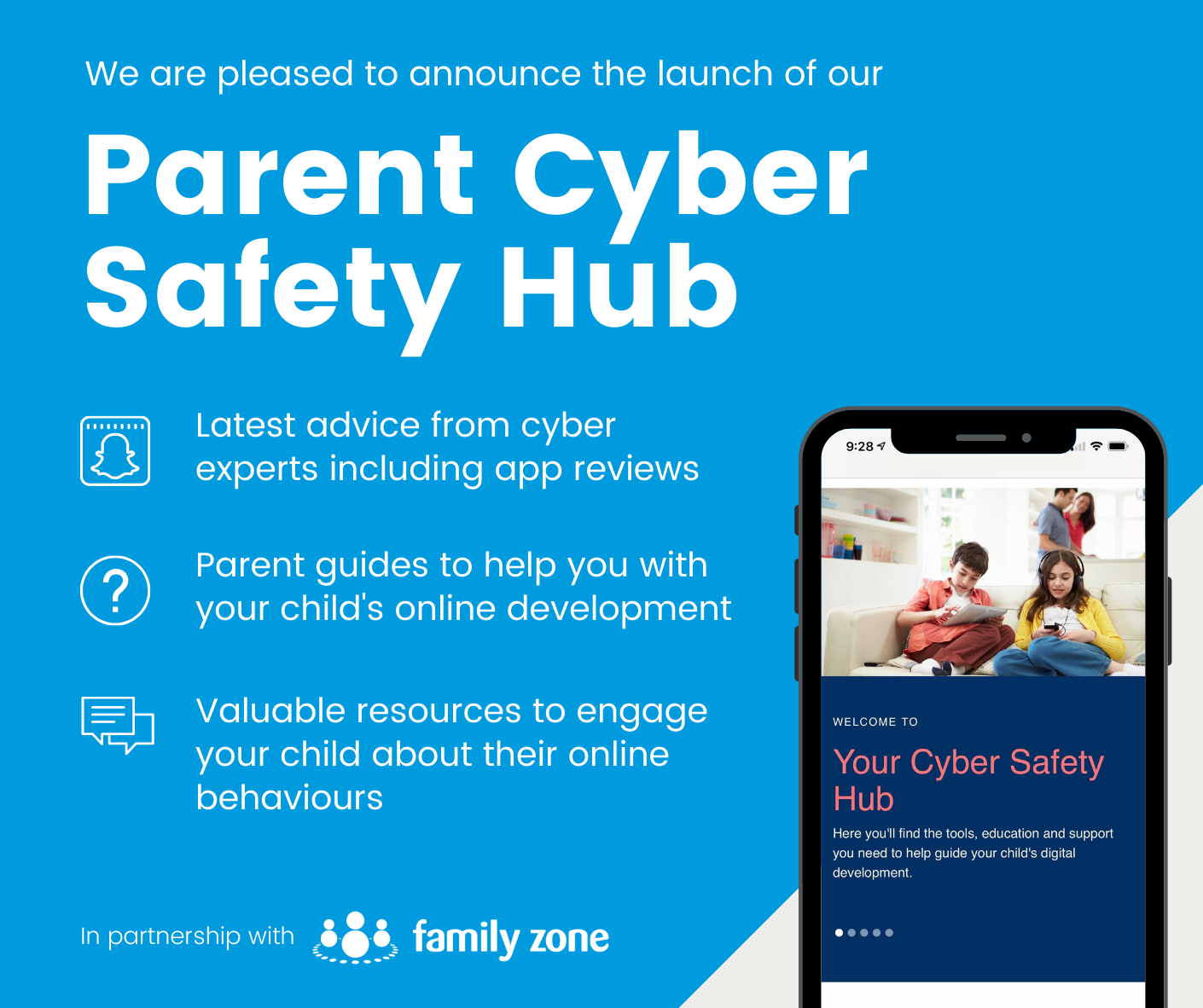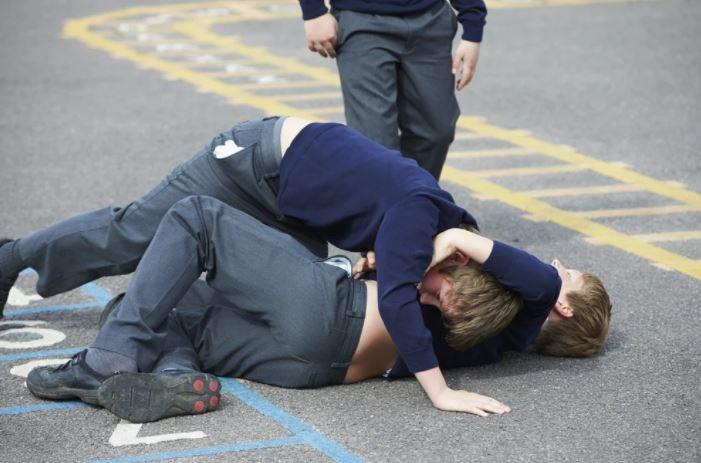Cyber Safety

Introducing our new Cyber Safety Hub
We are delighted to introduce you to a new resource made available to you through our partnership with Family Zone - our new school Cyber Safety Hub.
As you may already be aware, our partnership provides your family with access to the Family Zone tools to use at home with your children if you wish. The purpose of the Cyber Safety Hub is to complement those tools with practical guidance and information to further support you in engaging with your children in their digital development. These tools and resources also allow the school and parent body to work together on creating a holistic approach to guiding each student's online journey.
You can access the Cyber Safety Hub using the link below:
https://johnxxiii.cybersafetyhub.com.au/
About the Parent Cyber Safety Hub
The Cyber Safety Hub includes resources to help your family better understand the different Family Zone tools available to you and how to use them, plus access to regular cyber safety events to help you stay informed about the latest digital trends.
Also, the Cyber Safety Hub provides expert advice from leading cyber experts, ySafe, on the most pertinent issues and frequently asked questions around platforms like TikTok, Fortnite, Instagram, and more. There are app reviews with age and safety recommendations, along with a range of guides to help ensure healthy boundaries around screen-time & gaming, plus step-by-step instructions for using parental controls and filtering out inappropriate content.
We are very excited to be able to offer you this level of expertise and support. We look forward to working closely with you as we develop the cyber safety conversation within our school community.
'Internet Banging': When peer pressure goes viral
‘Internet banging’ is triggering a wave of violence in schools and the wider community. Find out what it is, and how it works.
Researchers who study social media have identified a clear link between teen violence and what they call “Internet banging”: taunts, disses and arguments online that can spiral swiftly into tribal warfare offline.
“Social media isn’t just mirroring conflicts happening in schools and on streets - it’s intensifying and triggering new conflicts,” says University of Connecticut social researcher Caitlin Elsaesser.
As part of a three-year study, she’s interviewed dozens of teens about their social media experience.
Her conclusion: Social media shapes the nature and intensity of conflicts in ways that can erupt in physical violence and, in the worst cases, even death.
As one teenage informant noted, “On social media, when you argue, something so small can turn into something so big so fast.”
The recent fatal shooting of two Philadelphia high-school students, for example, was sparked by an Instagram feud the two had nothing to do with.
Last month, at a high school in the Perth suburb of Rockingham, a brutal attack by students on two tradesman was live-streamed on Instagram.
During the rampage, students and teachers were forced to hide under desks and lock themselves in classrooms. School equipment was also destroyed.
As one of Elsaesser’s teenage informants noted, “On social media, when you argue, something so small can turn into something so big so fast.”
The study found that comments are the fuel that can ignite normal peer pressure into a viral fireball.
Livestreaming of fights on Facebook Live - a practice which has seen a recent spike in our schools - can garner a huge audience, and escalate conflicts even further.
Those livestreams may then be recorded and posted on other platforms by “friends” and followers.
Stopping the violence
Researchers have found that young people are acutely aware of how social media shapes peer conflicts. At the same time, as adolescents, they are hard-wired to define themselves with respect to peers. And that makes solving social media conflicts especially challenging.
That said, the research has identified four approaches to deal with the problem of internet banging:
- Avoidance, which involves exercising self-control to avoid commenting on or viewing conflict.
- De-escalation. This is all about taking steps to slow a conflict down before it flames out of control. Great in theory - but in practice it's a strategy most kids will really struggle with.
- Reaching out. Seeking support from peers, family or teachers. Simply screen-shotting comments as they start to escalate and sending them to a trusted adult for advice can be a circuit breaker.
- Bystander intervention. An important caveat here was that interventions that happen online are rarely effective and can even cause the “upstander” to become the new target.
To be most effective, research has found, intervention should take the form of conversations that happen offline.
Reference: https://www.familyzone.com/anz/families/blog/internet-banging-peer-pressure-goes-viral


